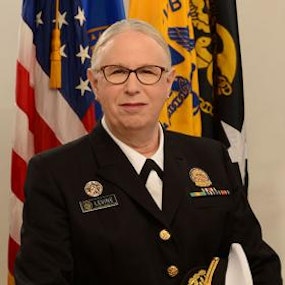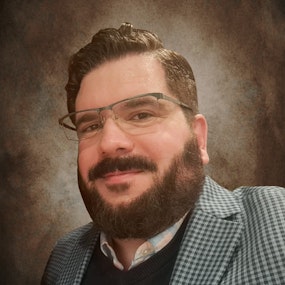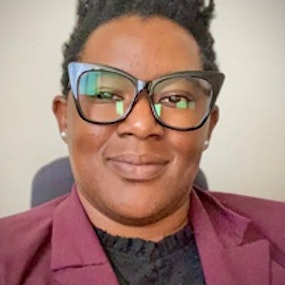JANSON SILVERS:
This is Public Health Review Morning Edition for Thursday, June 29, 2023. I'm Janson Silvers. Now, today's news from the Association of State and Territorial Health Officials.
ARNALDO MACHADO
I think the potential is endless. I'm very excited that this is happening. If anything, it's happening too late.
JANSON SILVERS:
That's Arnaldo Machado with the Massachusetts Department of Public Health. He's talking about a state program to build the workforce pipeline through connections with college students studying public health.
ARNALDO MACHADO
We have 13 colleges and universities that are participating in the Academic Public Health Corps. And we have eight who are participating in the Academic Health Department.
JANSON SILVERS:
Machado says the program has been written into the requirements for graduation.
ARNALDO MACHADO
So, if you're a master's degree or a student in the public health field, your degree normally has a practicum component. That is an opportunity for you to find a place in the local and regional arena of public health. And to not only complete your academic project, but also contribute to the department at that level.
JANSON SILVERS:
Students get practical experience, the state gets a chance to audition rising public health professionals as they near graduation.
ARNALDO MACHADO
What you learn in a classroom does not compare sometimes to what you are learning and doing when you are in an actual health department be at at the local level or at the state level. So, this experience helps translate all of the theory and the concepts that you've been taught and applying them into practice where it's needed the most.
JANSON SILVERS:
Machado says the plan is to grow the program into a key source of talent for state and local agencies looking to fill positions.
ARNALDO MACHADO
So, the result of the partnership has been stronger connections with academic institutions, so that we're able to have long-term pipeline efforts that are going to help us develop the workforce of tomorrow for public health.
JANSON SILVERS:
You can read more about the program using the link in the show notes.
Public health leaders can learn how to improve their skills through the ASTHO Leadership Institute. ClarLynda Williams-DeVane is the Deputy State Health Official in North Carolina. She visits with Robert Johnson about the ALI experience during an interview at ASTHO's TechXpo event in Chicago last month.
ROBERT JOHNSON:
You're in the first cohort of graduates from the ASTHO Leadership Institute. Why did you apply to be part of that program?
CLARLYNDA WILLIAMS-DEVANE
As a new senior deputy, I wanted every opportunity to do well at my job. And so part of that is becoming a better leader and taking opportunities to really hone in on those leadership skills.
ROBERT JOHNSON:
What did you learn while you're in the program?
CLARLYNDA WILLIAMS-DEVANE
So much! How to think differently, how to see other perspectives, really how to operationalize adaptive leadership, which I think is very important. I think one of the things that I've benefited from the most was the opportunity to have an executive leadership coach. And I love my executive leadership coach, because he really forces you to think critically about your career, your development, and how you make decisions about leadership. We did some very impactful exercises where I was able to really hone in on my career trajectory. And so I was really thankful for that opportunity and put it to work.
ROBERT JOHNSON:
I wanted to ask you about that you have a day job. What are you doing differently now, as a result of what you've learned the last six months?
CLARLYNDA WILLIAMS-DEVANE
Well, I learned a lot about public health and about the barriers that, you know, prevent us from our programmatic success. And so, I'll be starting a new job, thanks to my leadership coach, in part, because I recognized that there were strengths that I had, that I was not using, and that there were other ways that I could help public health without necessarily being in public health. And so I'm still going to be in the Department of Health and Human Services, but definitely move into a new role in a promotion. So, definitely using everything that I learned there to really think about, 'How do we remove the barriers to get this work done?' And really make sure that I'm giving my team everything that they need to be successful. And part of that is removing these barriers. And so, my new job is really working on removing those barriers.
ROBERT JOHNSON:
We hear so often from people who go through these ASTHO programs that when they get out, they take on a new position, they get promoted. This had something to do with that, you think?
CLARLYNDA WILLIAMS-DEVANE
Absolutely. I felt so empowered after having the ability to sit through the activities that we went through also talking through and helping your colleagues and your cohort work through their problems. You start to see your strengths. You also start to see your weaknesses and you really want to play towards your strengths. So, you see other opportunities where you can use those strengths.
ROBERT JOHNSON:
We always ask people who graduate to speak to those who are listening who maybe know about it, haven't decided to do it yet. Maybe they don't know about it. You just said, you got a promotion because of it. That's a huge reason to go through this, not guaranteed, but definitely on the list. What else? Why else ought they consider it?
CLARLYNDA WILLIAMS-DEVANE
I will say, do it, do it now. And you should consider it because it's the best investment in yourself. You may think you know yourself well, and you know your career trajectory, and you know that you're the best leader that you can be, but it can always be better. And having the opportunity to really explore who you are and what you bring to the table is so powerful. And so, I would encourage anybody to do it. If you have the opportunity, you get accepted, do it, and take full advantage of the opportunity.
JANSON SILVERS:
Throughout June, people across the country have celebrated Pride Month, Admiral Rachel Levine, the Assistant Secretary for Health for the United States Department of Health and Human Services, says this year marks a particularly important year for the LGBTQ community.
RACHEL LEVINE
It's an inflection point, because I think we have a tremendous opportunity to change the narrative about the LGBTQI+ plus community. And to dispel much of the misinformation that has been transmitted in much of the country and in many states.
JANSON SILVERS:
Across the country, there has been hurdle after hurdle for the LGBTQ community.
RACHEL LEVINE
So we know that state legislatures have taken nearly 500 Anti-LGBTQ bills this session. And this is information from the Trevor Project. And this poses real challenges for the LGBTQI+ community across the country, particularly for vulnerable trans youth, their families, and even their medical providers.
JANSON SILVERS:
Admiral Levine says HHS is working to advance policies that improve the health and wellness of LGBTQ people who live in America.
RACHEL LEVINE
Everyone benefits from diversity by promoting diversity. We encourage new ideas, better understanding, and we encourage tolerance, acceptance, but then also the ability to create a welcoming and celebratory environment for everyone, and the diversity that they bring.
JANSON SILVERS:
Finally, this morning, it's not too late to sign up for the Public Health Regenerative Leadership Synergy, also known as PHEARLESS. Check out our show notes for details.
That'll do it for today's newscast. We're back tomorrow morning with more ASTHO news and information. I'm Janson Silvers. You're listening to Public Health Review Morning Edition. Have a great day.







